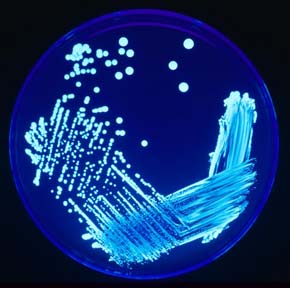 The Michigan Department of Health and Human Services (MDHHS) has once again revised its numbers of victims associated with the two consecutive outbreaks of Legionnaires’ disease that occurred in Genesee County in 2014 and 2015. Three additional LD cases, including two deaths, have now been added to MDHHS’ changeable list. MDHHS now also identifies at least 50 of the total 91 cases as having been hospital-acquired.
The Michigan Department of Health and Human Services (MDHHS) has once again revised its numbers of victims associated with the two consecutive outbreaks of Legionnaires’ disease that occurred in Genesee County in 2014 and 2015. Three additional LD cases, including two deaths, have now been added to MDHHS’ changeable list. MDHHS now also identifies at least 50 of the total 91 cases as having been hospital-acquired.
According to Eden Wells, M.D., Chief Medical Executive with the MDHHS:
“To date, 91 cases and 12 deaths have been identified in total for 2014 and 2015 in Genesee County … We remain vigilant in identifying any potential case associated with the outbreak”(1).
In its latest April 11th press release, MDHHS explains that this late discovery of the new cases resulted from their review of “hospital testing data that was recently forwarded to the department. Of the three additional cases, two had not been appropriately reported to the public health system. The third case was reported in a different jurisdiction and there was no epidemiologic information available to link it to the outbreak. MDHHS has provided additional guidance to the hospital to assist them in providing more accurate reporting moving forward.”
In this same press release, MDHHS states that their public health investigation has revealed that out of the 91 confirmed cases of Legionnaires’ disease, 50 (55%) victims has a common source of exposure: “a hospital in Flint, Mich. that is served by the City of Flint municipal water system. MDHHS cannot conclude that the increase is related to the water switch in Flint nor can we rule out a possible association at this time.”
Although MDHHS has never, in any of its press releases, revealed the name of this “hospital,” in 2014 a team of Michigan state epidemiologists who were investigating the first outbreak concluded that “McLaren [Regional Medical Center] was more strongly “associated with the outbreak than any other possible source – including Flint River water” (2). In this early epidemiological survey, 16 out of the 29 victims who responded to the survey had been inpatients at McLaren Flint.
And, in a recent news story in which the Detroit Free Press profiled 8 Legionnaires’ disease victims who died, 7 of these people were treated at McLaren Flint for other medical conditions prior to their LD diagnoses (2).
Officials at McLaren Flint have been slow to admit that over half of the Flint LD victims could have contracted the disease at their facility. Although, at the height of the initial outbreak (largely unreported to the public at that time), the hospital banned showers, provided patients with bottled water, and invested $300,000 in a new water treatment system, its statements regarding its culpability for the nosocomial (hospital-acquired) transmission of LD have remained ambivalent. In an initial statement in January 2016, they said that “there is no definitive data to support that McLaren Flint is the source of exposure for any patient testing positive for the Legionella antigen” (3). In a statement made a few weeks later, McLaren Regional Medical Center president Don Kooy conceded that *two* cases “could have been related to exposure to Legionella bacteria found in the hospital” (4).
Sources:
- Press Release. “MDHHS issues update to 2015 Legionnaires’ disease report for Genesee County.” Michigan Department of Health & Human Services. Web. 11 Apr. 2016.
- Elisha Anderson, “Faces of Legionnaires’ cases in the Flint area.” Detroit Free Press. Web. 9 Apr. 2016.
- “Steps taken to safeguard water after 2014 test found Legionella bacteria in water at McLaren Flint.” WXYZ Detroit. Web. 22 Jan. 2016 [date cited: 2 Feb. 2016].
- “Flint hospital suspected river, Legionnaires’ disease link.” CBS News. Web. 23 Jan. 2016 [date cited: 2 Feb. 2016].
Our law firm is not taking these cases.